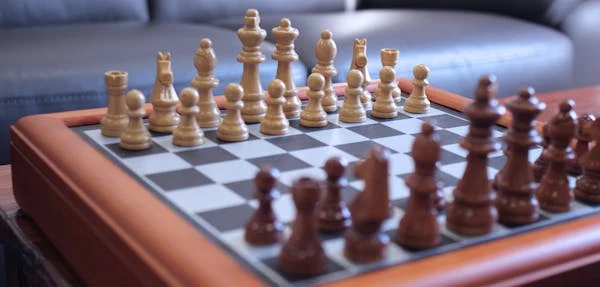Chess is not just a game. It’s a way to sharpen the mind, think deeply, and make smart decisions. For children and adults alike, learning chess helps build focus, patience, and confidence. And in Mangaf, Kuwait—a growing place with young energy—many people want to become better at chess.
Online Chess Training
Landscape of Chess Training in Mangaf and Why Online Chess Training is the Right Choice
Mangaf is a lively neighborhood in Kuwait. It’s full of families, schools, and bright young students. As chess becomes more popular in this area, many local chess groups and centers have popped up. These places usually run in community halls or classrooms, with coaches meeting students once or twice a week.
Now, while the passion is real, there’s a big problem.
Most offline chess academies in Mangaf don’t follow a proper step-by-step plan. Students might learn one thing today and something totally different tomorrow. There’s no clear structure. No long-term roadmap. And most of the time, the training depends entirely on which coach is available or how many students show up that day.
On top of that, the schedules can be confusing. Some sessions happen during school hours. Some happen at night. And since Mangaf gets hot during the summer, many classes get canceled or shifted.
This is where online chess training completely changes the game.
With online chess classes, students can:
- Learn from the best teachers, no matter where they live.
- Get a clear lesson plan that covers all levels—from beginner to advanced.
- Join classes from home, without wasting time in traffic.
- Rewatch recorded lessons anytime they need to revise.
- Practice through online puzzles and games, guided by coaches.
For Mangaf students, this is a big advantage. Instead of depending on local clubs that may or may not have good coaches, online training opens the door to world-class learning—and that too at your own pace and timing.
But not all online chess schools are equal. Let’s talk about the one that stands out from the rest.
How Global School of Chess is The Best Choice When It Comes to Chess Training in Mangaf
The Global School of Chess is not just another online chess academy. It is a place where students—no matter their age or background—get clear, structured, step-by-step training that turns them into smart, confident players.
Here’s how Global School of Chess works differently.
1. Proper Curriculum (Like a School for Chess)
Think of it like this. When you go to school, you don’t just learn random chapters. There’s a proper plan. A clear order of topics. First, you learn letters, then words, then sentences. Chess must be taught the same way.
At Global School of Chess, every student is placed in a level—Beginner, Intermediate, Advanced, or Expert. The coaching is not random. It’s like climbing a ladder, one step at a time. You master the basics first. Then, you go deeper. Every move you learn, every position you study—it all builds on the last lesson.
2. World-Class Coaches
All coaches at Global School of Chess are internationally rated. They don’t just know how to play—they know how to teach. That’s a big difference.
Some players can win games but can’t explain what they’re doing. That doesn’t help students. But at Global School of Chess, the coaches break everything down into small, easy steps. Even complicated topics like “positional play” or “pawn structure” are explained like a story. You understand, you remember, and you use it in your games.
3. One-on-One Attention
Every student gets personal attention. If you’re shy or confused, you don’t have to worry. The coach takes time to understand how you think. They adjust the pace to fit your style. This is what makes learning truly effective.
And if you miss a class? No stress. You can watch the recording.
4. Practice That Actually Makes You Better
Many chess classes just teach theory. They show a few famous games and give homework. But practice is where real growth happens.
At Global School of Chess, there are live practice sessions where students play under coach guidance. You learn, you play, and then you get feedback. What did you miss? What could you have done better? The coach shows you—and this is where real improvement begins.
There are also tournament simulations where students get to feel the real pressure of timed games. You don’t just learn chess. You learn to play with confidence.
5. Chess as a Life Skill
This academy doesn’t just train players. It trains thinkers. Students are taught how chess helps in real life—decision-making, focus, patience, and memory.
That’s why so many parents in Mangaf trust Global School of Chess. It’s not just a class. It’s a journey. And it’s designed to bring out the best in each child.
Offline Chess Training
Let’s take a moment to talk about how chess has traditionally been taught—in classrooms, community centers, school clubs, and local academies. This is what we call offline chess training.
In Mangaf, like in many other cities, most offline chess academies follow this model. A group of students gathers in a room. A coach stands in front of a board. The lesson begins.
This sounds fine in theory. In fact, for a long time, this was the only way people learned chess. And yes, sometimes it works. But more often than not, it doesn’t work as well as it could.
Let’s understand why.
Limited Time, Limited Learning
Most offline classes happen once or twice a week. The sessions usually last about one hour. That’s not a lot of time to explain deep topics like attack planning, defense ideas, opening traps, or endgame tricks. And if you miss even one class, you fall behind. There’s no recording. No way to catch up.
Group Sizes Are Too Big
In many offline academies in Mangaf, there are too many students and just one coach. It’s hard for that coach to give personal attention. Maybe you don’t understand a tactic. Maybe you feel confused. But in a crowded classroom, it’s easy to be overlooked.
And if you’re shy, you may not ask questions at all.
Coaches May Not Follow a Plan
This is very important. Many offline coaches teach based on what they feel like covering that day. There’s no fixed structure. One day it’s openings. Next day it’s puzzles. There’s no map, no journey. You may feel like you’re learning a lot, but weeks go by, and you don’t see real improvement in your games.
Why? Because learning is not just about collecting tricks. It’s about building understanding, piece by piece.
Drawbacks of Offline Chess Training
Now that we’ve looked at what happens in traditional classrooms, let’s go deeper into the problems with offline training, especially when compared to proper online academies like Global School of Chess.
No Consistent Curriculum
Without a clear path, students end up learning randomly. Today they’re taught how to use the knight. Tomorrow they’re given a puzzle with queens. The week after that, it’s the Sicilian Defense—but no one remembers the knight moves from two weeks ago.
This is not learning. This is scattered information. It doesn’t stick.
Miss a Class, Miss the Lesson Forever
Offline classes don’t come with video replays. If you’re sick, stuck in traffic, or have another event, you miss the class. And that lesson is gone. There’s no way to revisit it.
Compare that to Global School of Chess, where every session is recorded. Students can rewatch it anytime, even months later. They can pause, rewind, and revise. That’s powerful.
Less Flexibility
Offline classes follow a fixed time and place. If you’re late from school or your parents can’t drive you, you miss out. That pressure can turn learning into stress.
Online classes, on the other hand, give you full control. You learn from home. You choose your batch. You save time. And you stay relaxed.
Not Always the Best Coaches
Offline academies usually hire local coaches. Some are great. But many are just average players who enjoy teaching. They may not have international ratings or serious tournament experience. They might not stay updated with modern chess ideas. This limits the growth of the student.
At Global School of Chess, every coach is carefully selected. They are active players, strong communicators, and professional teachers. That’s a rare combination.
Weak Feedback System
After a class or a game, a student wants to know: What did I do right? Where did I go wrong? In offline setups, feedback is quick and general—”Good job”, “Try harder”, “Don’t miss tactics”.
But that’s not helpful.
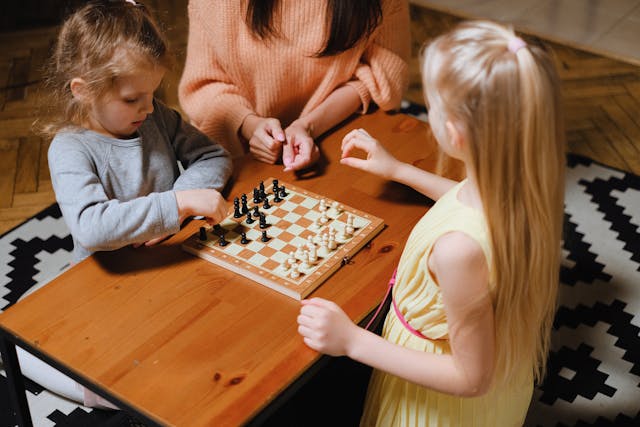
Online platforms like Global School of Chess use game reviews, screen sharing, annotations, and clear explanations to give deep, thoughtful feedback. Students learn from their mistakes. And they actually grow.
Best Chess Academies in Mangaf, Kuwait
Now let’s come to the heart of this article.
We looked at various academies offering chess coaching in Mangaf and nearby areas. We looked at how they teach, what their students say, and how they help beginners and growing players. And based on all of this, here are the top 5 chess academies you’ll find.
Let’s begin with the best.
Global School of Chess
This is where real chess learning begins.
If you’re in Mangaf and you’re serious about improving your game—or helping your child grow as a chess player—Global School of Chess is the top choice. Not just in Mangaf. Not just in Kuwait. But across the entire online chess world.
Here’s why.
A Chess Academy With a Mission
Global School of Chess is not just about coaching. It’s about transforming how people think. Their mission is simple: to teach chess in a way that makes people smarter, sharper, and more confident—both on and off the board.
And they’ve done this for students in over 20 countries.
From Mangaf to Mumbai, from London to Lagos, students from all walks of life have learned from the academy’s powerful system.
Step-by-Step Levels
The academy uses a structured curriculum—just like a school has class 1, 2, 3… here, you have levels. Each level focuses on what the student needs at that stage:
- Beginners learn how each piece moves, basic rules, and simple tactics.
- Intermediate students learn opening ideas, planning strategies, and common mistakes to avoid.
- Advanced players study deep middlegame tactics, positional understanding, and tournament techniques.
- Expert level players get trained for FIDE ratings, competitive goals, and psychological strength.
Each level ends with an evaluation and personalized feedback. You don’t just move forward—you move forward with confidence.
Coaches Who Care Deeply
The coaching team is hand-picked. All teachers are patient, experienced, and ranked. But more than that, they care about their students. They notice every small improvement. They celebrate every success. And they push gently but firmly when needed.
One parent from Mangaf said:
“My son used to be nervous during chess games. But after just two months with Global School of Chess, he now plays with focus and confidence. He even beats me now!”
That’s the kind of change we’re talking about.
1-on-1 and Group Classes
Global School of Chess offers both personal coaching and group learning. If you want personal attention, you can opt for private classes. If you enjoy learning with friends, there are small group batches too.
No two students are treated the same. The plan is tailored to match your speed and style.
Weekly Game Reviews and Mock Tournaments
Every week, students get their games reviewed. The coach tells them what worked, what didn’t, and what to fix next time.
There are also practice tournaments that simulate real match pressure. This helps students build nerves of steel.
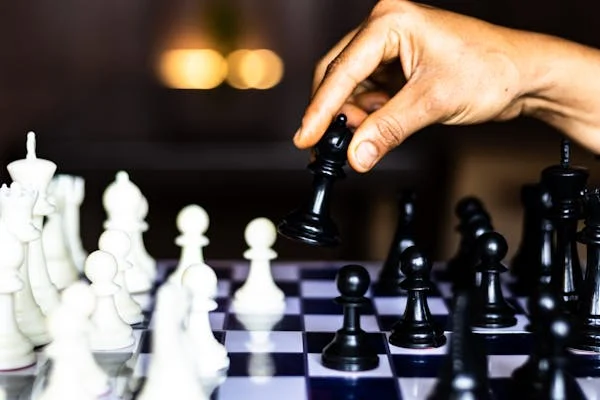
Lifetime Learning Tools
Students at Global School of Chess get lifetime access to resources:
- Lesson videos
- Puzzle books
- Opening sheets
- Strategy guides
- Game databases
They also get to join an online community of chess learners—making friends, solving puzzles, and helping each other grow.
No other academy in Mangaf or Kuwait offers this level of long-term support.
Online Makes It Better
You don’t have to travel. You don’t have to wait for coaches. You don’t have to deal with crowding.
You just open your device, join your class, and start learning.
Whether you’re a beginner or aiming to win tournaments, this is the smartest way to learn chess.
Kuwait Chess Federation
Let’s now talk about another known name in Kuwait: the Kuwait Chess Federation.
This is the official chess body for the country. It organizes tournaments, represents Kuwait in global chess events, and occasionally offers coaching camps and group training. It’s located in Hawally, which is a drive from Mangaf, so it’s not the most accessible for families living in the area.
What They Offer
They mostly focus on tournaments and national-level representation. If you’re already a very strong player, they might include you in some coaching camps or team prep. But if you’re a beginner or someone trying to build up from scratch, the structure is a bit unclear.
There’s no fixed curriculum, no online classes, and no personal feedback system like the one offered by Global School of Chess.
Also, because they are a national federation, their training is focused more on a few selected talents rather than helping a wide range of everyday students grow consistently.
Why Global School of Chess Is Better
The biggest difference is access and structure. Global School of Chess is always available online. They don’t pick a few students—they welcome everyone and help each student grow. Whether you’re 6 or 60, you get training that’s built just for you.
Where the Kuwait Chess Federation feels more like a sports authority, Global School of Chess feels like a real school—with lessons, mentorship, and care.
Future Kids Chess Club
This club is based in Fahaheel, close to Mangaf. It’s part of a larger center that offers drawing, music, and other enrichment activities for kids. Chess is one of the extra-curriculars they offer.
What They Offer
The focus here is mostly on younger kids, with playful learning and casual coaching. They introduce students to piece movements, basic rules, and some puzzles. It’s a fun environment, and many children enjoy the experience.
However, the problem lies in depth.
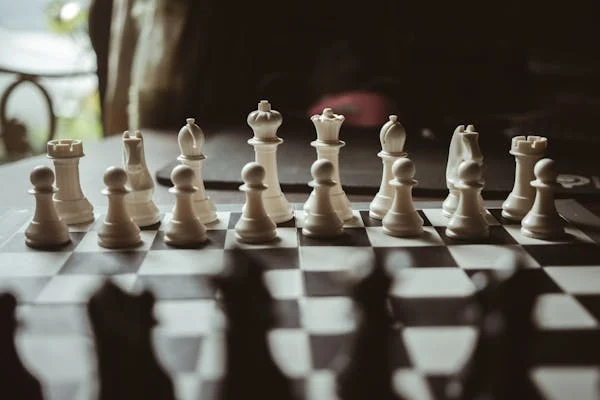
There is no serious chess training here. No tournament prep. No strategy breakdown. No roadmap to move from basic to intermediate to advanced. It’s great for early exposure, but not if you want real improvement.
Also, their classes are offline, once a week, and usually packed with many kids.
Why Global School of Chess Is Better
At Global School of Chess, fun is combined with depth. Even beginners learn from a world-class curriculum, and even 7-year-olds are taught how to calculate moves, set traps, and play with structure.
Also, with Global’s online format, children don’t just learn—they actually practice and get stronger week after week. The lessons are built like stories, so kids stay hooked—but they also grow faster than they would in casual clubs like Future Kids.
Mind Masters Kuwait
Mind Masters is a coaching group that offers various mental development programs. They focus on Vedic maths, memory training, abacus, and yes—also chess. They’re located in Salmiya and often run weekend chess workshops.
What They Offer
Their chess classes are structured like group camps. A coach walks students through puzzles, board setups, and games. The pace is slow and the group sizes are large. Their teachers are enthusiastic, but many are part-time chess players, not full-time professionals.
You may get some basic training here, and it’s good if you want to dip your toes in. But the depth stops early. There’s no long-term chess plan, no ranking goals, and no tailored tracking of progress.
Why Global School of Chess Is Better
Global School of Chess is fully focused on just one thing: making you great at chess.
Their coaches don’t split attention between abacus and math games. Every coach is a chess expert. Every lesson is chess-focused. And every step is built to move you forward.
More importantly, Global offers recorded replays, practice tournaments, homework review, and game analysis—none of which you get at Mind Masters.
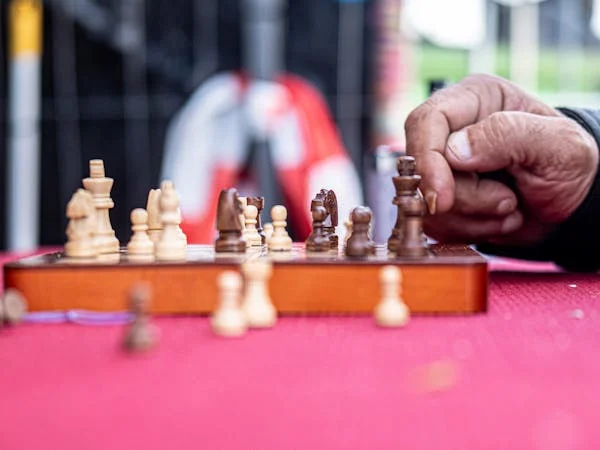
In short, Global is a full academy. Mind Masters is more like an extra activity.
Smart Moves Club
Smart Moves is a small community club that occasionally runs chess evenings at local cafes and libraries in Mangaf. It’s a casual group of chess lovers who meet, play, and discuss games. Some local players act as informal mentors.
What They Offer
Smart Moves is not a formal academy. It’s more of a chess hangout. There are no structured lessons, no homework, no tracking system. People gather, play games, and sometimes help each other understand a mistake.
For hobbyists, this is fine. But for someone who wants to learn chess properly—from the ground up, with guidance, feedback, and steady growth—this won’t work.
Also, their meetings are irregular. There’s no fixed schedule. Sessions get cancelled or moved depending on availability.
Why Global School of Chess Is Better
Global School of Chess is not based on luck or chance. It’s not a group that meets “if possible.” It’s a world-class system that runs like clockwork. Students are never left behind. There’s always a plan. And there’s always a coach to guide you forward.
If you’re serious about learning chess—not just playing games—then Smart Moves is not enough. But Global gives you the full package: learning, playing, analyzing, and mastering.
Why Online Chess Training Is the Future
We’re living in a time where everything is moving online—school, work, shopping, even sports coaching. So, it’s no surprise that chess training online is now better than ever before.
But why is it the future?
Flexibility and Freedom
Online training gives students the power to choose their time, their pace, and their comfort. You don’t need to fight traffic, wait for others, or miss classes because you’re sick. You learn from your room, your tablet, your rhythm.
That freedom turns learning into a joy.
World-Class Access
In the past, you could only learn from coaches near you. Now, you can learn from FIDE masters, grandmasters, and expert teachers across the globe—without leaving your house.
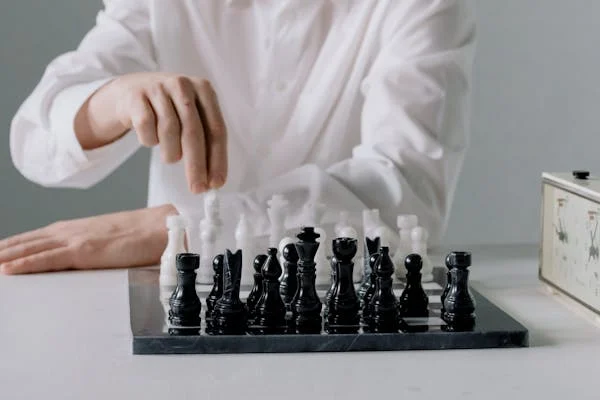
That’s what Global School of Chess brings to your screen.
Clear Progress Tracking
With smart tools, recorded lessons, online notes, and structured feedback, online chess academies give you a full picture of your journey. You can actually see your progress. You know where you started and how far you’ve come.
That motivates you to keep going.
Better Learning with Technology
Online training uses interactive boards, live analysis tools, real-time annotations, quizzes, and puzzles. These tools help students understand faster and remember longer.
Offline boards can’t do that. Whiteboards can’t do that. But online chess can.
How Global School of Chess Leads the Online Chess Training Landscape
Now let’s end with one simple truth: Global School of Chess is not just a chess school. It is a movement.
Here’s how it’s leading the future of online chess learning:
1. Personal Coaching That Fits Your Needs
Every student gets a custom plan. There’s no “one-size-fits-all” here. Whether you’re a total beginner or an advanced player stuck at a rating plateau, the coaches design your training to match your needs.
2. Structured Levels With Measurable Growth
You don’t just learn tactics. You build understanding. Level by level. With reviews, assignments, and real tournament preparation.
Each student is guided with care—and the growth shows in their games.
3. Lifetime Resources
Every student at Global gets permanent access to resources. That means even if you stop classes for a month, you still have everything you need to keep practicing and reviewing.
It’s like having a chess library in your pocket.
4. Regular Practice + Mentorship
You play games. You get reviewed. You ask questions. You get answers.
At Global, mentorship never stops. The coaches care. They watch your journey and make sure you keep moving forward.
5. A Friendly and Safe Environment
Chess can be stressful. But at Global School of Chess, the environment is kind, encouraging, and built on trust.
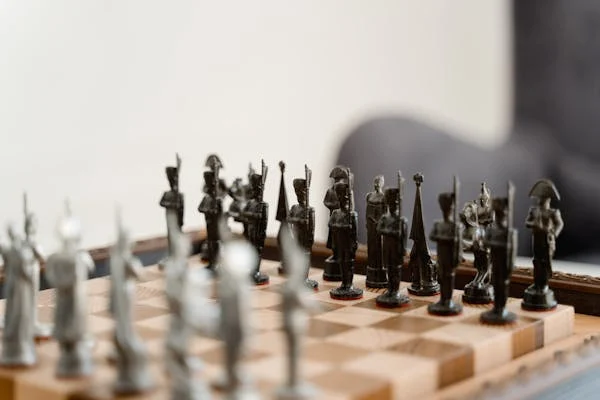
Parents feel safe. Students feel supported. And the whole experience feels like a community—one that believes in your growth.
Wrapping It Up
Chess is more than a game. It’s a skill, a mental workout, and for many—it’s a path to personal growth. In a city like Mangaf, where more and more students are picking up chess boards and dreaming of becoming smarter, sharper players, the demand for real, meaningful coaching has never been higher.

